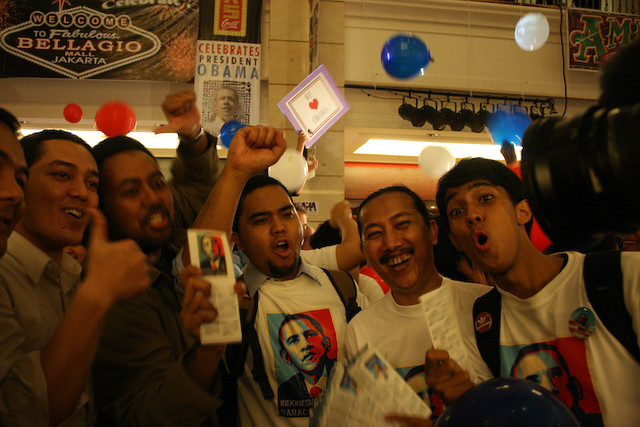When the ABC started quizzing John Kerry about the recent phone tapping of Indonesian Leaders by Australia, the penny finnally dropped for me.
This whole episode has a simple explanation, and I don’t think it’s that sinister.
As a country, Indonesia faces difficult security challenges.
It has suffered a number of terrorist attacks over the last ten years including:
- The Jakartaa Stock Exchange bombing in 2000.
- The Bali Bombing in 2002 targeting Western Tourists, which killed 202 people including 164 tourists.
- The Jakarta Mariott Hotel bombing in 2003 killing 12 people.
- The suicide car bombing of the Australian embassy in 2004 killing 11 people.
- The bombing og the Tentena markets in 2005 killing 22 people.
- The bombing of three restaurants in Bali in 2005, killing 25 people.
- The twin bombing of the Carlton and Mariott hotels in Jakarta in 2009 killing several people.
US President Barack Obama planned to visit Indonesia in March 2010. This visit had to be postponed until November for U.S. domestic reasons. All presidential visits for foreign countries demand huge security operations. When Obama visited India in 2010, a fleet of 34 warships patrolled the nearby coastline. 13 heavy-lift aircraft, three helicopters and 500 security personnel arrived in Mumbai ahead of Obama’s visit.
It would be fair to say that when it comes to presidential security, the Americans don’t leave anything to chance.
And it would be reasonable to assume in a security-challenged country like Indonesia, the Americans made no exceptions.
US security whistle-blower Edward Snowden says Australian Intelligence Personnel harvested cellphone metadata of Indoneian leaders in 2009. He also says they attempted (but failed) to actually “tap” the phone of Indonesian leader SBY.
Just an aside here: Cellphone Metadata records the time, date, duration, source and target of a phone call. It doesn’t record the content of a phone call. Metadata is easily obtainable by governments claiming to act in the interests of national security. Without trying to sound alarmist, if the government suspects you, they would have no difficulty in obtaining a detailed list of phone calls made to / from your phone.
Joining these dots, I think it’s pretty obvious what happened.
US Security was trying to be as thorough as possible, “sweeping” Indonesia for potential security risks ahead of Obama’s visit.
US Security knew Australia had close ties with Indonesia.
US Security asked Australia to gather cellphone metadata of Indonesian leaders.
Australia complied.
That metadata ended up in US Security records.
That metadata was leaked by Edward Snowden.
I don’t think this assumption makes too many huge leaps.
What conclusions can we draw?
As far as the US ws concerned, the security sweep of Indonesia was essential before Obama arrived. Both the US and Indonesia wanted the visit to go ahead.
Australia is a faithful ally of the US, and complied willingly to US requests.
The US failed Australia in allowing this information to see the light of day.
And the final conclusion?
I don’t have super powers. If I can figure this out based on news reports, I’m sure that the Indonesian Government can as well. And I am sure in a candid moment they would agree that the security sweep was necessary. Which leads me to conclude that they’re not surprised it happened. They’re surprised that the media found out, and they’re reacting strongly to placate the anger of the Indonesian people ahead of presidential elections next year.
I hope I am correct, as this would imply that the furore will abate after those presidential elections.


